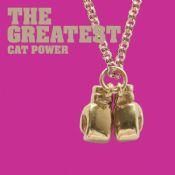Chan Marshall Meets Memphis Soul
One can imagine Chan Marshall sitting herself down in a darkened, candle-lit Ardent Studios in Memphis, singing these melancholic songs in late night sessions stretching until dawn.
Perhaps that’s not the way it happened, but it’s the misty mood set by Marshall and engineer Stuart Sikes, who lets the room speak as no engineer has since Steve Albini let a generation of slackers know what recording music was originally about: capturing a live, living, breathing event.
The combination of Marshall’s moss covered, breathy, fragile vocals, anchored by Hi Records alumni guitarist Mabon “Teenie” Hodges, and his brother bassist Leroy “Flick” Hodges, along with a bevy of other top Memphis musicians better known for funk than for hurt and regret, creates a moist atmosphere that’s as much felt as heard.
Though these are the folks who created Al Green’s sinewy, sexually charged backdrops (“Teenie” Hodges co-wrote “Take Me to the River”), here they play no less soulfully, but with a restrained delicacy appropriate to Marshall’s Southern regrets and her very basic, art/folk chord progressions.
Drummer Steve Potts almost floats over the skins and Sikes mikes him from afar so that he’s all in the backdrop, bathed in room sound the way you’d hear drums in a good audiophile recording. The rest of the instruments—piano, horns, and strings get similarly restrained treatment, all appearing with truthful clarity, three-dimensionality, focus and solidity, but in the distance and out of a dense atmosphere. Rarely do you hear such purity of purpose and sonic honesty in a modern studio recording aimed at a “commercial” audience.
The title tune, the opener, is about a boxer who, like Ali, wanted to be “the greatest,” but loses his will. It opens with a simple piano figure, backed by strings, followed by loping drums over which Marshall sings the regret with aching vulnerability. “The Greatest” sets the mood for the whole twelve song cycle.
Because Marshall half-whispers her way through the songs, it’s very difficult to make out the words so it’s fortunate there’s a lyric sheet, though even reading along with them, her imagery and wordplay leave meanings vague. It’s more about how the words make you feel than about what you see. The words deliver solid images that often fade into obscure backdrops.
Musically, the chord structures are familiar and sturdy, with Marshall making more from them than would seem possible. Listen to “Living In Bars,” and you’ll hear straight-ahead ‘50’s Doo-Wop, but listen to what the band does with it and how she veers from it and modernizes the chorus.
Marshall has described her poor, southern upbringing as being about a lot of moving and living in a variety of unusual venues, not all of which were the most savory, but whether “Lived in Bars” is autobiographical, (“We’ve lived in bars, And danced on tables, Hotels trains and ships that sail, We swim with sharks, And fly with aeroplanes in the air”), I don’t know, nor do I really know what the song is about, nor do I care, nor does it matter.
Though some of the songs swim in obscure imagery, most express simple sentiments of love and longing using the charming sentiments I imagine can be found in little girl’s diaries.“Where Is My Love” is as simple and basic as can be: “Where is my love, Where is my love, Horses running free, Carrying you and me.” In “The Moon” about faithfulness, Marshall sings “When I lay me down, Will you still be around, When they put me six feet underground, Will the big bad beautiful you be around.”
Perfectly conceived, superbly produced, evocatively arranged, sympathetically played and performed with soft, vulnerable mystery by the enigmatic Chan, The Greatest is among the most appealing releases of the past year musically and sonically. It’s what the art of record making is supposed to be about. I pity anyone who gets this as a download. They’re missing the story and hardly getting the point.
I heard the advance CD from Matador for a long time before buying the vinyl and I found myself saying about the excellent sounding CD, “How much better can it get than this?” Once I got the album and noticed that it was pressed on 180 gram vinyl at RTI, was mastered by Kevin Gray at AcousTech and had deluxe, metallic cover art, I realized that the vinyl was put out by people who really cared. I prepared for a sonic feast, and I wasn’t disappointed.
The vinyl sounds so much better than the CD, it is ludicrous (but expected, of course). I did an LP/CD comparison for kids at Cornell when I lectured there back in March of 2006 and I used this Cat Power album and CD on a $299 Pro-Ject Debut III turntable and an inexpensive but highly regarded CD player and I heard the same differences I hear at home on the ridiculously expensive analog and digital front-ends I have here. And the kids heard it too, with a few saying that with the record they wanted to listen and pay attention but with the CD their mind wandered off to other things. Bingo!
- Log in or register to post comments



